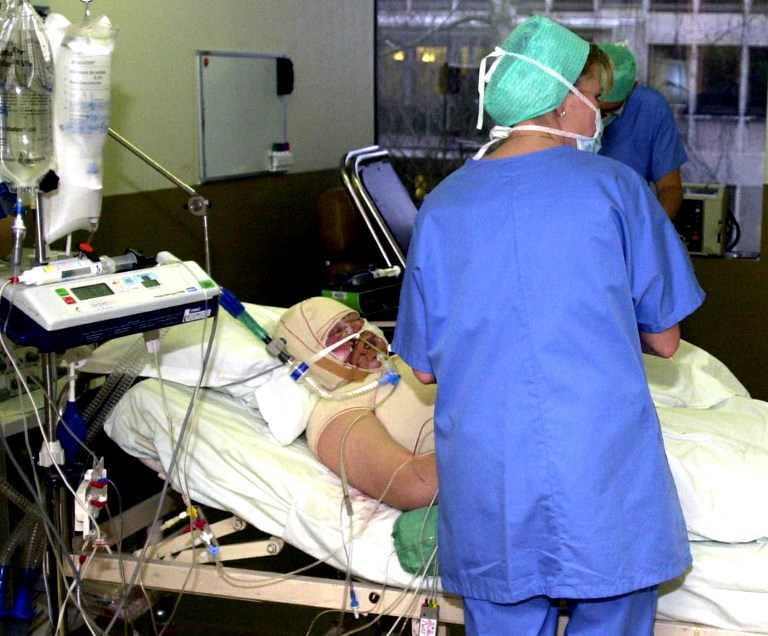Nighttime injuries heal more slowly — study

This file photo shows one of the victims of a blaze in a cafe in the Dutch town of Volendam, who suffered severe burns, while being treated at the IMTR hospital in Charleroi 02 January 2001. A recent study showed that injuries, like burns, that are suffered at night heal more slowly. AFP FILE
MIAMI, United States — People who are injured at night heal far more slowly because the body’s internal clock regulates the pace of healing and performs better during the day, researchers said Wednesday.
The report in the journal Science Translational Medicine found that cuts and burns healed about 60 percent faster if the injury happened during the day compared to at night.
Researchers say the body’s clock, or circadian rhythm, is the reason for the difference, because it regulates crucial body processes including sleeping, metabolism and hormone secretion.
“This is the first time that the circadian clock within individual skin cells has been shown to determine how effectively they respond to injuries,” said senior author John O’Neill, a scientist at the Medical Research Council Laboratory of Molecular Biology in Cambridge.
“We consistently see about a two-fold difference in wound healing speed between the body clock’s day and night,” he added.
“It may be that our bodies have evolved to heal fastest during the day when injuries are more likely to occur.”
The study was based on experiments using both live mice and human skin cells in a lab dish, and was corroborated with records of 118 burn patients from major burn units in England and Wales.
Nighttime burns — happening between 8 pm and 8 am — took an average of 60 percent longer to heal. Burns incurred at night were 95 percent healed after an average of 28 days, said the report.
Daytime burns healed in just 17 days, on average, because skin cells moved to the site of the wound to repair it with proteins like actin and collagen much faster during the day.
The same process was apparent in mice and human cells in a lab dish, suggesting that the body’s internal circadian clock is in charge of this process.
“Further research into the link between body clocks and wound healing may help us to develop drugs that prevent defective wound healing or even help us to improve surgery outcomes,” said lead author Ned Hoyle, also from the MRC Laboratory of Molecular Biology. /cbb














